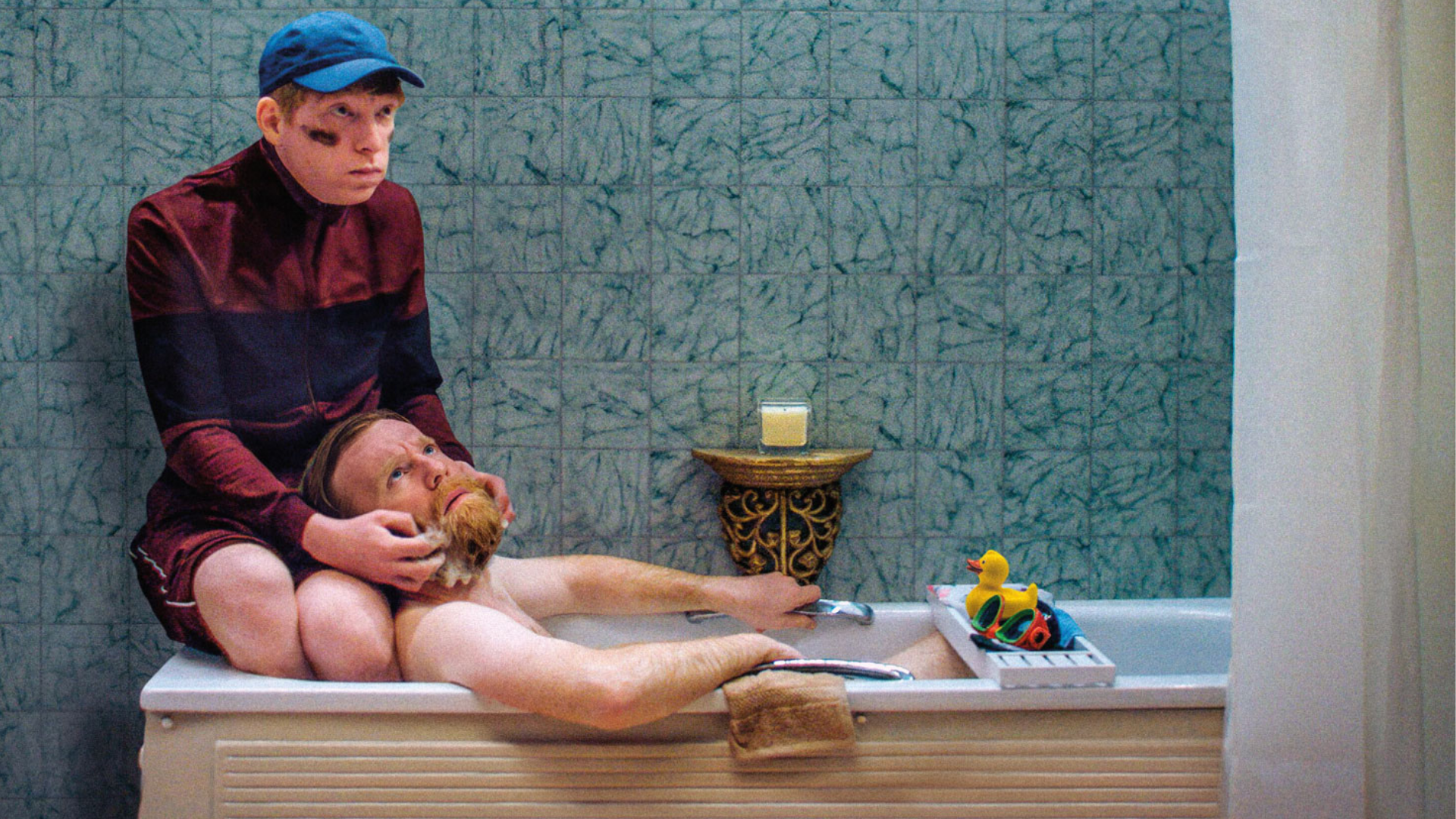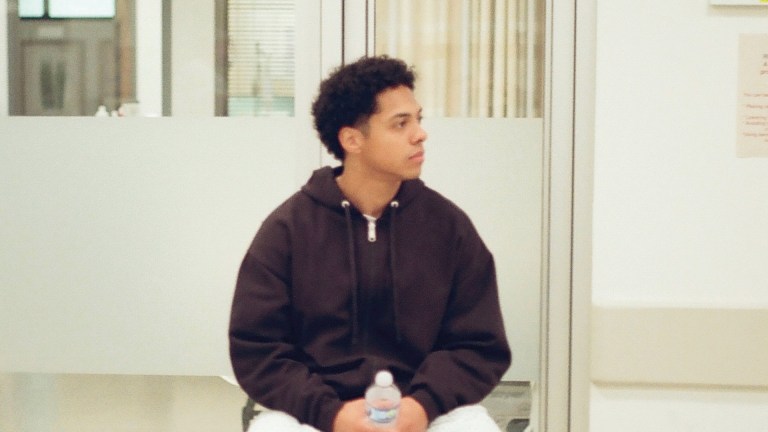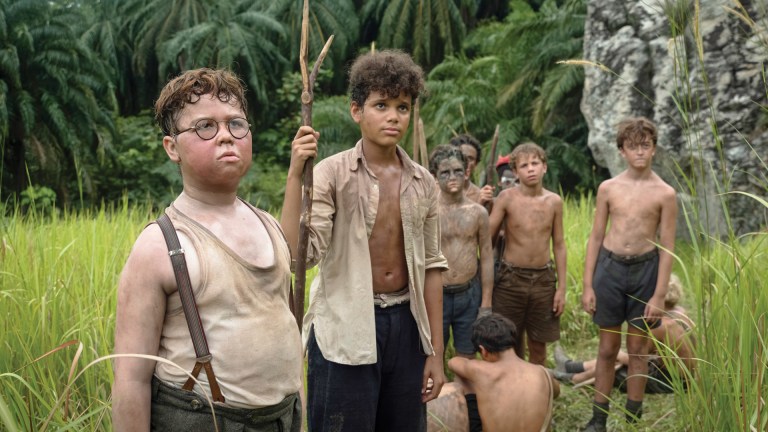So it is that Frank lives at home with his mum, has never worked a day in his life, and professes to be a musician despite having produced no new music or played no new shows (until a disastrous ‘gig’, complete with merch stall, at his ex-girlfriend’s mother’s funeral) for years. “It did remind us of a certain type of wonderful, comfortable childhood,” says Brian, whose big roles range from Peaky Blinders to Snow White and the Huntsman. “The tragedy is that he hasn’t moved out of it.”
There’s a presumptuousness about his place in the world, and certainly the more toxic elements of certain sorts of masculinity
The brothers Gleeson join us on Zoom from their homes in Dublin and London. Does the relationship between Frank and Doofus reflect the one between the siblings, back in the day?
“When I was nine, Domhnall would have been in his early teens,” says Brian. “We used to make movies and stuff and Domhnall would direct – so he was very much the auteur and I was the willing actor. But I certainly looked up to him.”
Input from Sharon Horgan, whose Merman company co-produces the show, helped them nail the concept and an ending that really brings home the idea of Frank and Doofus being stuck in a rut, never able to escape their infantilising friends and family. Despite its silliness, does the show also have something to say about modern masculinity?
“There is an aspect of Frank where he feels like the world owes him something,” says Domhnall. “He feels like it’s overdue. There’s a presumptuousness about his place in the world, and certainly the more toxic elements of certain sorts of masculinity. We played with that a little bit.
“As it progressed, we were interested in some deeper questions about why Frank is the way he is and what does it say about his world and the people in his life that they all keep each other in this place.”
Advertising helps fund Big Issue’s mission to end poverty
“But any time you start going, let’s make this about something, whatever scenes you write tend to be pretty bad!” adds Brian. “So it’s funny now, on reflection, making connections that we weren’t making at the time.”
Does that include the connection to lockdown, living the same day over and over again?
“The difference in Frank’s world is that he has the option to move on if he would only push himself – the mad thing for everybody for the last year is that nobody had that option. We’re just stuck in this Groundhog Day scenario,” says Domhnall.
Dad came on board and it was just amazing. We were delighted that he was up for it and brought his A-game
“It is interesting to have made something about somebody who’s stuck in a cycle of behaviour which is not conducive to good living. And all the characters in the show are like that to one degree or another. But one of the joys of watching it, and for us when we were editing during lockdown, was them just being out in the world. Going on adventures. And to coffee shops. These places we can’t go any more.”
And the pub scenes? “Oh, I wish I was in that grotty shithole right now, having the time of my life.”
Some of those pub scenes include another member of the Gleeson clan, dad Brendan, making perhaps the least surprising guest appearance since the dawn of television.
Advertising helps fund Big Issue’s mission to end poverty
“We always wanted dad to be a part of it, right Brian?” says Domhnall. “Dad was really positive about it and said, ‘If there’s anything you would like me to drop in and do, I’m available’. Then it was a case of only wanting to do that if there was something worthwhile. Not just a thankless cameo, doing it because he’s our dad, but because you need somebody that good. Dad came on board and it was just amazing. He was such a great presence on set. We were delighted that he was up for it and brought his A-game, you know, as he always does.”
Brian agrees. “Early on there was the idea of a kind of father figure and it didn’t really earn its place. At that stage, we just didn’t know enough about Frank and we didn’t know enough about this show. Then, as we got further into it, we realised there was a perfect place for that character in the context of the themes that we’re dealing with, so it just came together in a really lovely way.
“Thankfully, he was free, he wanted to do it and he brought his own whistle.”
“That was one of the conditions,” Domhnall laughs. “You must bring your own tin whistle!”
Frank of Ireland starts on April 15 on Channel 4









